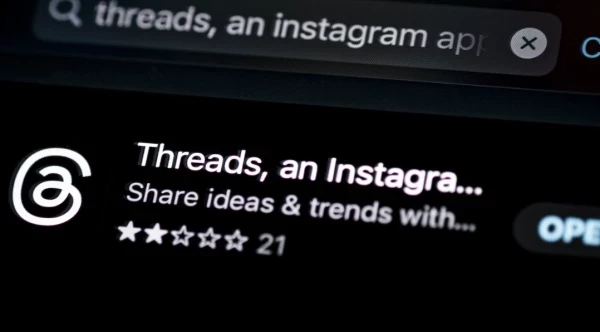Customers & Food: Mobile Users Get Free Starbucks, Angry Customer Throws Back His Pizza
Add bookmarkIn a new, regular feature at CustomerManagementIQ.com, we spotlight customer service happenings in specific industries. This week, we look at two customer management stories generating buzz in the restaurant industry.
With a strong commitment to social media and quirky loyalty promotions (see the "Spank Your Pizza" fan pizza creation contest), Toppers Pizza has garnered significant attention and respect within customer management circles.
But you can’t win ‘em all—and a recent incident involving a 26-year-old customer from New Berlin, Wisconsin revealed that even overtly-fan-friendly businesses deal with angry customers.
News stories emerged this week (August 8-12) that the man, disgruntled over the quality of his order from the pizza chain, was arrested by Brookfield police on July 31 for throwing his food at the staff.
According to police, the customer, seeking delivery, accidentally selected the take-out option when placing his online order. He eventually learned of his mistake, and he called the restaurant to request delivery an hour after making the purchase.
Apparently due to the mix-up, the delivered food arrived cold, and the man called the restaurant to express his frustration. Evidently unsatisfied with the store’s response, he drove to the Brookfield Toppers and began throwing his cold pizza and breadsticks at employees, allegedly screaming obscenities in the process.
The disgruntled customer confirmed to police that he threw the food, adding that he "made a mistake and didn't want to hurt anybody."
He is charged with disorderly conduct.
Want free Starbucks coffee? Thanks to a mobile payments campaign, you might be in luck.
Jonathan Stark, vice president of application architecture for Mobiquity, recently made a Starbucks card public, enabling mobile users to download the barcode image and scan it as currency when paying for their coffee products.
[eventPDF]
"Jonathan's Card is an experiment in social sharing of physical goods using digital currency on mobile phones," explains Stark on the project’s website. "You can download this picture of my Starbucks card to your phone and buy coffee at Starbucks with it. Seriously. My card gets charged, you don't."
Under the "pay-it-forward" premise, the project hinges on the idea that a sufficient portion of those who use funds from the card will later contribute to its balance, enabling future mobile users to reap the same reward. Stark funded the card initially, but others have taken on the responsibility of keeping it replenished.
"95% of people are super cool and like the idea. The last I checked, about an hour ago, the number of people getting drinks versus people contributing money was 2 to 1," says Stark, who also claims to the LA Times that at least $4,000 has come from contributors.
Using a script that grabs the current balance from Starbucks’ website, the card’s Twitter page (@jonathanscard) updates with changes, signaling when users can expect to successfully pay for their Starbucks product and when the card needs a refill.
Stark’s tracking shows that the greatest abuse—people using the card for purchases that are costlier than a single beverage or possibly even transferring funds to their own cards—occurs when the balance gets really high. At the $20-30 level, the process is fairly self-policing.
Based on the frequency with which funds are circulating through the card, people clearly enjoy the project. But what does Stark get out of it?
The answer to that question depends on who you ask.
The website Coffee Strategies is very suspicious of the campaign, citing evidence that suggests a link to Starbucks. Having apparently uncovered Starbucks’ viral marketing campaigns previously, the website highlights evidence that questions the apparent altruism behind "Jonathan’s card."
Notably, Coffee Strategies grabbed a screenshot from an apparently-since-deleted Mobiquity page that identified Starbucks as a client. Since Stark works for Mobiquity, if the screen is legitimate, it would effectively establish an affiliation between Stark and Starbucks and thus spur questions about Starbucks’ involvement, whether direct or indirect, in the campaign.
Stark vehemently denies any involvement from Starbucks.
"It's come to my attention that someone has made claims that the Jonathan's Card project is a viral marketing campaign sponsored by Starbucks," wrote Stark on the "Jonathan’s Card" Facebook. "The Jonathan's Card experiment was completely my idea, Starbucks had absolutely nothing to do with it, and until recently, I was scared to death that Starbucks might sue the crap out of me.
"I am deeply hurt by accusations that I've been acting out of self-interest or on behalf of Starbucks, partly because it calls my integrity into question, but more importantly because it threatens to destroy the good feelings that have been built up by thousands of people who have participated in this wonderful experiment."
While no hard evidence exists to dispute Stark’s dismissal of Starbucks’ involvement, his claim regarding the absence of self-interest has raised a few eyebrows.
Mobiquity, his employer, makes mention of the project and directly links to CNN’s coverage on its official website.
Stark might very well have engineered the project independently and without an intent to build the brand of either himself or his employer. But unlike the free coffee rewards his card has racked up, which he plans to donate, the benefit to Mobiquity is being and will continue to be realized—the solution provider is getting significant, mainstream media attention.
Still, for most customers, will it really matter whether or not Starbucks, Mobiquity or Stark is benefiting from a campaign that offers them free coffee?





















